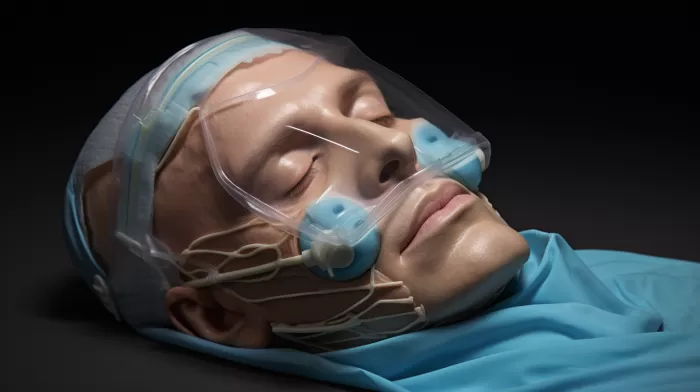If you’re struggling with your weight loss journey and finding it hard to resist those carb cravings, you might want to take a closer look at your sleep. Obstructive sleep apnea, a condition that causes breathing to stop briefly during sleep, is not only harming your sleep quality, but it’s also making it harder for you to stick to that diet.
Sleep Apnea and Carb Cravings
People with obstructive sleep apnea experience short periods of non-breathing during the night. These interruptions can lead to an increased appetite for carbohydrates during the day. This is particularly concerning for individuals with diabetes, as it poses additional health risks.
According to a study led by researcher Mahmood Siddique, DO, of the Robert Wood Johnson Medical School in New Brunswick, N.J., a significant association was found between sleep apnea and self-reported carbohydrate cravings among diabetic individuals. This supports earlier findings that showed hormonal changes resulting from sleep deprivation can lead to increased cravings for high-calorie carbohydrates such as cookies, candy, breads, rice, and potatoes.
The Importance of Catching Those Zzz’s
Getting a good night’s sleep is a key component of overall health and well-being, affecting both your physical health and your mental state. Adequate rest allows your body to repair and grow, making it essential for your mood and cognitive abilities. In other words, a solid night’s sleep can help with weight loss and proper nutrition.
When your sleep is disrupted, your body starts releasing stress hormones like cortisol, which can lead to weight gain. Interrupted sleep cycles can also decrease levels of leptin, a hormone that controls your appetite and tells you when you’re full. At the same time, decreased sleep can increase ghrelin, a hormone that tells your body to eat more.
How Sleep Position Can Make a Difference
Treating sleep apnea often involves wearing a special mask to help with breathing during sleep. However, for some people, simply changing their sleep position can make all the difference.
Sleeping on your stomach may prevent sleep apnea for some individuals, as it helps to keep the airway open. Try using a thinner or specially designed pillow to help with this sleep position. If stomach sleeping isn’t for you, sleeping on your side with a pillow between your knees can also be helpful in reducing sleep apnea symptoms.
Tips for Better Sleep and a Healthier You
If you believe your sleep apnea is causing your carb cravings, consider taking some steps toward improving your sleep and overall well-being:
- Establish a sleep schedule: Aim to go to bed and wake up at the same time each day, even on weekends. Your body’s internal clock will adjust to the schedule, helping improve your sleep quality.
-
Create a calming bedtime routine: Turn off electronics and engage in relaxing activities, such as reading, taking a warm bath, or practicing light stretches, in the hour leading up to bedtime.
-
Set the stage for sleep: Make sure your bedroom is dark, quiet, and cool. Invest in blackout curtains and white noise machines to block out any noise or light pollution.
-
Be mindful of your eating habits: Eating a large meal too close to bedtime might keep you awake. On the other hand, going to bed hungry can also disrupt your sleep. Make sure to consume a balanced meal a few hours before hitting the hay.
-
Exercise regularly: Regular exercise can help regulate your sleep patterns, as it helps to expend energy and reduce stress. Be mindful of the timing of your workout, as exercising too close to bedtime may make it more difficult to fall asleep.
By improving your sleep quality and potentially reducing symptoms of sleep apnea, you may be more able to resist carb cravings during the day and stick to a healthier diet. In turn, this can lead to a successful weight loss journey and improved overall health.



